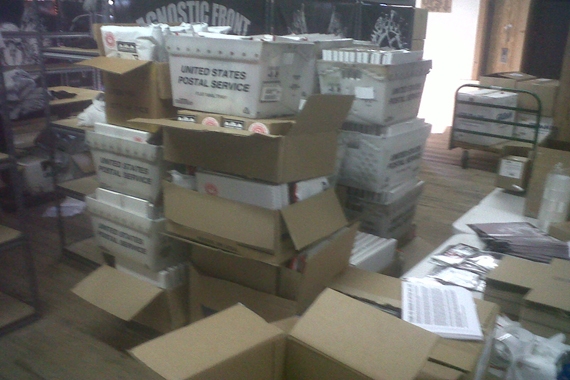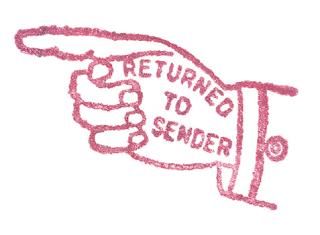Admitting the Problem
.png) |
|
Strategy, alignment, communication of goals is not easy. Our Vision To Value white paper talks about focusing your team on the key strategic corporate goals and ensuring everyone in your organization knows the direction. |
Look at the
|
Even though my research indicates it is no longer used, the "Bless me Father, for I have sinned...", serves a multitude of purposes. A far cry from being a theologian, I will avoid diving into its religious value and focus on a secular approach.
First, admitting intentional or accidental wrongdoing relieves the stress of not knowing the reaction when people find out. It stops the thought from ruminating in our minds at the wee hours of the morning depriving us of sleep. It is out of the shadows of our conscience.
The confession also improves our respectability by showing integrity—even if they have a hard time understanding or agreeing with the reason for our deed. People's reactions change when they know the source of an issue. Blame assignment is no longer a concern. The healing process starts and frustration with the problem fades. Assuming the transgression was nothing heinous, trust may ultimately increase since people know they will not be targeted as a scapegoat in the next mishap.
Return to Sender
On a project a few years ago, one of the tasks was converting a significant amount of data from one vendor's format to one that my client could use, merging that with another source of information, and loading into the corporate CRM. One of my responsibilities was managing the data conversion team.

A problem surfaced when selecting the address for mailing the marketing materials. This was critical since the new customer base needed to understand a series of new benefits options available through the new provider. A seemingly simple task since there was an address type called "mailing address." However, a little research uncovered that both "street address" and "home address" were also populated and there were contractual penalties for mailing information to the improper address. We worked for days trying to determine the best address to use and how to merge the data. We arrived at a consensus and I sent out the email to give direction. Even though I copied everyone involved with the decision, no one caught the fact I had errantly entered the wrong address. We should have used the "Street Address," instead, the email said "Mailing Address."
About a week later, marketing mailed over a hundred-thousand mailers stuffed with brochures, applications, and a welcome letter for the new customers. Two days later, the first of a dozen pallets of returned mail arrived in the client's mailroom. Nothing is more sickening than walking past the mailroom, hearing the complaints of a yet more boxes of returned mail while on the way to a meeting where the customer asks, "What caused this?" My answer was brief, "I told them to use the wrong address." The room went quiet. No one knew how to respond. There would be no witch-hunt, no investigation, no accusations, no finger pointing. After a few more sentences on how we were going to fix the issue, the meeting moved on to the next subject.
Accountability
Fault was assigned, through the confession, and trust was built. Without personally admitting the problem, it would have been insincere and I would not have taken accountability for my mistake. It would have been quite different had I sent an email or used some emotionally detached iPhone app. My peers would have missed seeing the sincerity, the regret, and the humility. It would have been a hollow confession done at my own convenience.



.gif)

